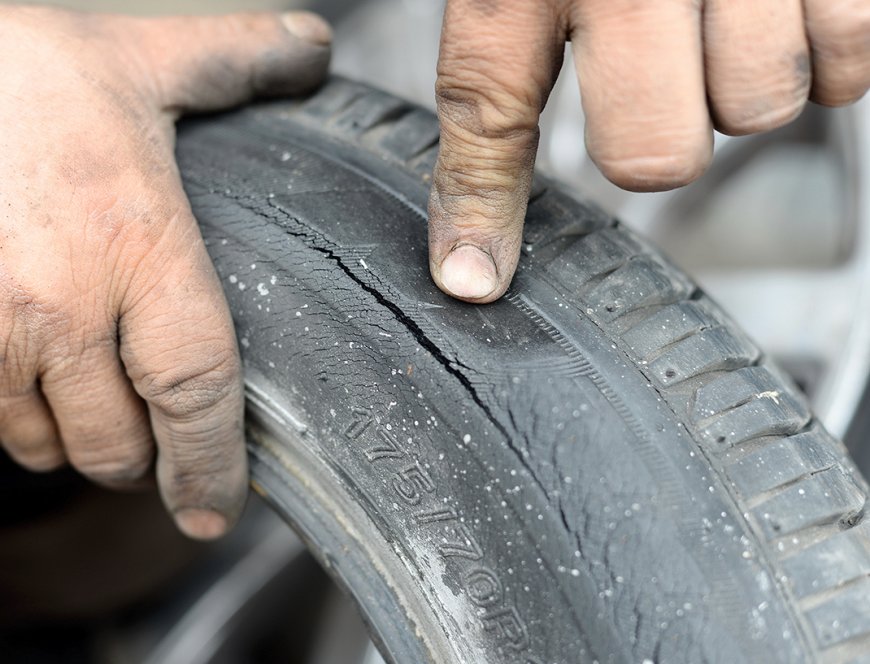When Is the Best Time to Replace Worn-Out Tyres?
Tyres in the UAE usually last 3–5 years due to extreme heat. Even if your tread looks fine, ageing rubber and heat fatigue may signal it's time for a replacement—especially if you're...

Tyres dont last foreverno matter how expensive or durable they claim to be. Knowing the right time to replace them isnt just about tread depth; its about safety, comfort, and performance. If youve been wondering when to swap out your old set, this guide will help you make that call confidently.
Lets break it down in simple terms.
Why Timing Matters
Driving on worn-out tyres increases your stopping distance, reduces grip, and raises the chances of skiddingespecially during emergency braking or in wet weather. In the UAEs high temperatures and rough road conditions, tyre wear can happen faster than you might expect.
Thats why being proactive about tyre replacement isnt just smartits essential.
Signs Your Tyres Need Replacing
Here are a few telltale signs that its time to shop for new tyres:
1. Tread Wear Is Visible
If the tread has worn down to 1.6mm or less, your tyres are legally and practically worn out. Use a tread depth gauge or the penny test if you're unsure.
2. Cracks and Dry Rot
Sun exposure, heat, and age can cause cracks in the rubber. If you notice splits on the sidewalls, thats a red flag.
3. Bulges or Blisters
A bubble on the tyres sidewall means the internal structure is damagedthis could lead to a blowout if not addressed immediately.
4. Uneven Wear
If some parts of your tyre wear faster than others, it could be due to alignment issues. Still, the fix might not be rotationsometimes, its best to replace them entirely.
5. Vibration While Driving
While some road feedback is normal, excessive vibration might indicate a tyre issue or imbalance. It could also point to internal damage.
How Long Do Tyres Typically Last?
Tyre life depends on multiple factorsbrand quality, driving habits, road surfaces, and weather conditions. In the UAE, where temperatures soar, tyres generally last about 35 years, even with light use. After five years, it's wise to have your tyres professionally inspected annually, no matter how they look.
What About the Age of the Tyres?
Even if the tread looks fine, an old tyre can be dangerous. Tyres start degrading after about 6 years, and most manufacturers recommend replacing them after 10 yearsmax.
You can find the tyres manufacture date on the sidewall in the form of a four-digit DOT code. For example, 2319 means it was made in the 23rd week of 2019.
Seasons MatterSo Does the Climate
In countries with snowy winters, drivers often switch between summer and winter tyres. In the UAE, however, the focus is on handling intense heat. If your tyres show signs of softening or rubber fatigue during summer, its time to look for replacements before a long drive or road trip.
Understanding Tyre Prices in Dubai
When you're in the market for new tyres, tyre prices in Dubai can vary depending on brand, size, and where you shop. Youll find premium brands like Michelin, Pirelli, and Bridgestone at the higher end, while reliable options like Hankook or Kumho come at more budget-friendly rates.
Its important to note that prices often include extras such as balancing, installation, and sometimes even alignment checksso read the fine print.
Online platforms have made comparing tyre prices in Dubai much easier. Sites like PitStop Arabia and others let you filter by size, brand, and even driving style so you can make a well-informed decision without leaving your home.
How to Make the Right Tyre Choice
Here are a few pointers to help you buy wisely:
-
Know your size: Always match the size on your current tyres unless your vehicle manual or a mechanic suggests otherwise.
-
Shop trusted brands: Well-known brands tend to offer better grip, durability, and warranty support.
-
Compare deals: Dont jump at the first listing. Compare installation costs and warranty coverage, not just the base price.
-
Check the manufacturing date: Especially when buying onlineolder tyres may be cheaper but less safe.
Final Word
Replacing tyres isnt about squeezing out every last kilometerits about knowing when to stop pushing your luck. With the intense heat and fast-paced traffic of UAE roads, tyre health directly impacts your safety.
Keep an eye on wear indicators, sidewall damage, and age. And when its time to replace, dont just search for the cheapest setconsider performance, longevity, and the best tyre prices in Dubai from reputable sources.




































